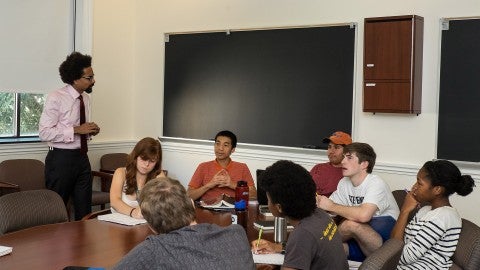Digital technologies have altered the way historians both use sources and make their findings public. In some cases, new databases, such as Voyages: The Trans-Atlantic Slave Database, can be constructed to allow researchers access to huge amounts of data, which can be used to construct broader views of, for example, the origins of slaves, the routes of slave traders, and the economics of slavery. In other cases, global positioning technologies allow for a different kind of urban history. Digital platforms enable new approaches to public history as well, from putting sources on line to opening up debates to a far broader public. The department supports student work in the spatial and digital humanities through its own funds, including the S. Wright Kennedy Spatial History Projects Research Fund. Faculty members in this area include:

